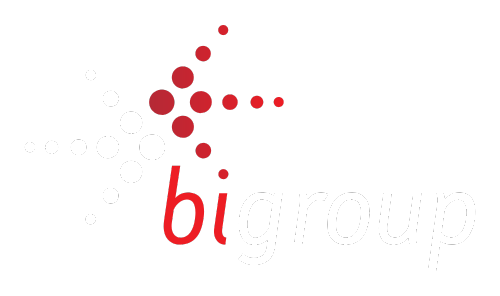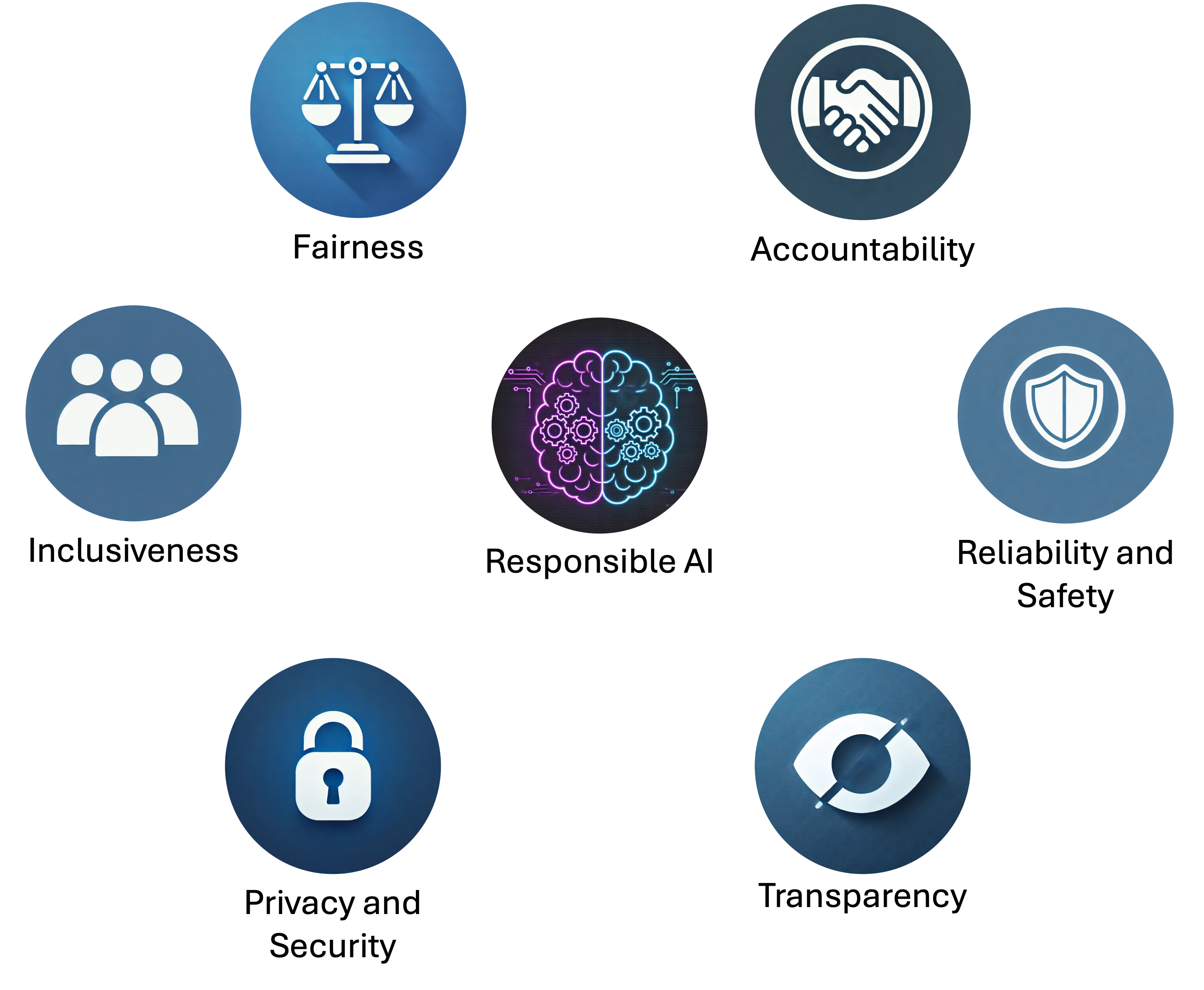Artificial Intelligence (AI) is reshaping industries, revolutionising decision-making, and enhancing productivity across the globe. Yet, as AI systems continue to permeate critical aspects of society, a pressing question emerges – what is responsible AI, and why does it matter?
Responsible AI is the practice of designing, developing, and deploying AI systems that are ethical, trustworthy, and aligned with human values. It’s about ensuring that AI operates in a way that prioritises fairness, safety, transparency, and accountability. At its core, responsible AI seeks to mitigate risks, promote inclusivity, and foster trust by embedding ethical principles into every stage of the AI lifecycle.
At BI Group Australia, responsible AI is not just a concept – it’s a guiding philosophy. As AI plays an increasing role in driving sustainability, governance, and ethical innovation, we are committed to creating AI solutions that serve humanity while safeguarding privacy, security, and fairness.
The principles of responsible AI are anchored in six foundational pillars:
- Fairness
- Reliability and Safety
- Privacy and Security
- Inclusiveness
- Transparency
- Accountability
Each of these pillars addresses a critical aspect of AI governance and ethics, forming the framework that guides the responsible deployment of AI technologies.
Fairness
Fairness is essential to ensuring that AI systems do not discriminate or reinforce biases. When AI models are used to make decisions in areas like healthcare, finance, or recruitment, they must treat all individuals equitably, delivering consistent and just outcomes. Addressing bias in data and algorithms is key to achieving fairness, as AI systems can inadvertently reflect the prejudices present in the data used to train them.
Reliability and safety
Reliability and safety ensure that AI systems perform consistently and as intended, even in complex or unpredictable environments. AI should be resilient to errors and capable of functioning reliably across diverse conditions. This pillar emphasises rigorous testing, continuous monitoring, and error detection to mitigate risks and enhance system robustness.
Privacy and security
Privacy and security are non-negotiable in the development of AI systems. As AI applications collect and analyse vast amounts of data, protecting sensitive information is paramount. Responsible AI prioritises data security, encryption, and adherence to privacy laws, ensuring that user information remains confidential and secure.
Inclusiveness
Inclusiveness is about designing AI systems that serve all segments of society, regardless of background or ability. Inclusive AI recognises the diversity of its users and strives to eliminate barriers that could exclude certain communities. This pillar ensures that AI technologies are accessible and beneficial to everyone, promoting digital equity.
Transparency
Transparency is crucial for fostering trust in AI systems. Users should understand how AI models arrive at decisions, and AI processes should be explainable and interpretable. Transparency enables stakeholders to scrutinise AI operations, identify potential issues, and hold developers accountable for the outcomes of AI-driven decisions.
Accountability
Accountability reinforces the principle that organisations and developers must take responsibility for the AI systems they build and deploy. It ensures that AI technologies are subject to oversight, with clear governance frameworks in place to track, audit, and address potential risks. This pillar highlights the importance of human oversight, ensuring that AI systems complement, rather than replace, human judgement.
At BI Group Australia, we offer three flagship solutions designed to help organisations operationalise responsible AI:
- Responsible AI Framework – Embeds ethical practices into AI development, addressing fairness, transparency, and inclusiveness from the ground up.
- AI Governance Suite – Provides tools to monitor, audit, and manage AI systems throughout their lifecycle, ensuring compliance and enhancing accountability.
- AI Ethics & Compliance Solutions – Aligns businesses with evolving regulations and ethical standards, offering assessments and tools to ensure AI operates within acceptable boundaries.
Responsible AI is not just a regulatory requirement – it’s a competitive advantage. Businesses that adopt responsible AI principles are better positioned to build trust, mitigate risks, and foster long-term innovation. By prioritising fairness, inclusivity, and transparency, organisations can harness the transformative power of AI while ensuring that it benefits society as a whole.
Implementing responsible AI requires a proactive approach. Regular fairness audits can identify and mitigate biases, while explainable AI tools offer greater insights into how models function. Embedding privacy and security by design ensures that data protection is integral to the development process. Establishing governance frameworks with clear accountability measures reinforces human oversight and guarantees that AI operates within ethical boundaries.
As AI continues to shape the future, responsible AI provides a pathway to sustainable growth and ethical innovation. At BI Group Australia, we are committed to advancing AI technologies that are not only powerful but principled, ensuring that our solutions drive positive impact for businesses, communities, and the environment.
Ready to implement responsible AI in your organisation? Contact BI Group Australia today to learn more about how our solutions can help you build ethical, transparent, and accountable AI systems that drive real results.

